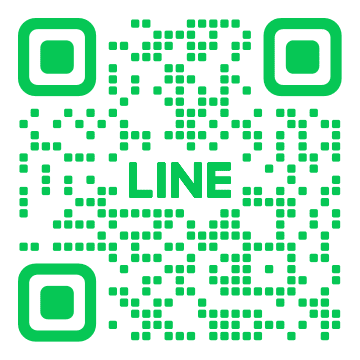The more you engage, the more your brain will tell you that this is an activity that can help reduce loneliness (which may not necessarily be the case, actually). Therapy is a non-judgmental space where you can learn to deal with other issues and improve how you cope. To find a treatment program, browse the top-rated addiction treatment facilities in each state by visiting our homepage, or by viewing the SAMHSA Treatment Services Locator. People who have depression or social anxiety may be more likely to turn to social media as an escape from their offline reality. Social media addiction may often occur with other mental health conditions, in part because of how social media use can affect mental health and vice versa. A 2020 paper stated that people using negative language on social media were at higher risk for death from heart disease than those using positive language.
Their connectedness through social media isn’t merely periodical or frequent – it is constant. In our social media-driven world, it’s hard to imagine a life without Facebook, Twitter, or Instagram. We rely on these platforms to stay regularly connected with friends and family, follow the latest news, and share our thoughts and experiences. For people with substance use issues, like heavy drinking or drug use, a substance addiction treatment program may be recommended. When a person engages in a pleasurable activity, the brain releases a hormone called dopamine.
A Complete Guide to Choosing the Best Material for Your Custom Bag for Life
Such a reaction may be more felt whenever you make a post of your own and gain positive feedback. Since this activity is becoming more accessible to more people, though, more people may develop an addiction to social media at some point in their lives. The helpline at AddictionResource.net is available 24/7 to discuss the treatment needs of yourself or a loved one. This helpline is answered by Ark Behavioral Health, an addiction treatment provider with treatment facilities in Massachusetts and Ohio. Social media overuse can often be a sign of an underlying condition, such as a mental health disorder or substance use disorder.
- We rely on these platforms to stay regularly connected with friends and family, follow the latest news, and share our thoughts and experiences.
- When it comes to identifying the causes of social media addiction, there is no single known cause.
- The hypodermic needle delivers a drug right into our vascular system, which in turn delivers it right to the brain, making the drug more potent.
- Repeated exposure to the same or similar stimuli ultimately creates a chronic dopamine-deficit state, wherein we’re less able to experience pleasure.
- If you are concerned about your social media use, reach out for help so you can overcome the addiction before it becomes a bigger problem.
- In such cases, it may be wise to consult a therapist and seek professional treatment.
One study from the University of Pittsburgh found a correlation between time spent scrolling through social media apps and negative body image feedback. Those who had spent more time on social media had 2.2 times the risk of reporting eating and body image concerns when compared to their peers who spent less time on social media. Everything clinical experience of baclofen in alcohol dependence from physical appearance to life circumstances to perceived successes are scrutinized and processed by users. The need to gain likes on social media can cause teens to not only alter their appearance but also to make choices they would otherwise not make, including accepting risky social media challenges and engaging in negative behaviors.
Footer Content
“They’re all about impulse and not a lot about the control of that impulse,” Dr. Greenfield said of young consumers. Whether you have social media addiction or are just on your apps more than you need to be, the good news is there are ways you can help decrease your overall use. If you are concerned about your social media use, reach out for help so you can overcome the addiction before it becomes a bigger problem. No matter how long compulsive social media use has been interfering with your daily activities or causing distress, it’s never too late to stop. But for someone with a social media addiction, their relationship with these apps goes beyond healthy use.
The phenomena of social media addiction can be largely attributed to the dopamine-inducing social environments that social networking sites provide. Social media platforms such as Facebook, Snapchat, and Instagram produce the same neural circuitry that is caused by gambling and recreational drugs to keep consumers using their products as much as possible. Studies have shown that the constant stream of retweets, likes, and shares from these sites cause the brain’s reward area to trigger the same kind of chemical reaction seen with drugs like Cocaine.
In such cases, it may be wise to consult a therapist and seek professional treatment. Possibly, around this time, the term “social media addiction” was colloquially used to mean the addictive dependence on social media platforms like Facebook, YouTube, Instagram, Twitter, Snapchat, etc. Some experts estimate up to 10 percent of people in the United States have social media addiction. Still, it is hard to put an approximate figure as so many of us regularly engage with social platforms. If you do suspect you have social media addiction, there are ways you can treat it to increase your overall well-being.
Today, the addictive substance of choice, whether we realize it or not, is often the internet and social media channels, according to Lembke, MD. Also, social media giants like Facebook, Tiktok, Twitter, and youtube pour billions of dollars into advertising and hire engineers that are paid to make content more addictive. These sites also track your activity, customizing your feed to show you posts you are most likely to look at, watch, or comment on. This all makes social media more addictive in nature and makes it harder for the average person to disconnect.
This may occur because increased social media use may lead to sleep problems, lack of exercise, and peer pressure. In later years, the terms “problematic internet use” or “pathological internet use” came to mean problematic and compulsive use of the internet that significantly impairs a person’s physical and mental health. Dopamine, the main chemical involved in addiction, is secreted from certain nerve tracts in the brain when we engage in a rewarding experience such as finding food, clothing, shelter or a sexual mate. Nature designed our brains to feel pleasure when these experiences happen because they increase our odds of survival and of procreation. Many of us still use social media to connect, share content like videos and memes, read the news, or just kill time.
Social media addiction can lead to low self-esteem, anxiety, depression, increased loneliness, sleep deprivation, and health problems linked to reduced physical activity. When you call our helpline, you’ll be connected with a representative who can assist you in finding mental health and addiction treatment resources at any of the Ark Behavioral Health addiction treatment facilities. Call our helpline today to learn more about social media addiction and to find treatment that’s right for you or a loved one in your life. Like with drugs or alcohol, people with compulsive social media use may struggle to limit or stop their behavior. Addiction is a condition that can be debilitating, harmful to health, and disruptive to a person’s daily life. However, it is considered by some to be an emerging type of behavioral addiction similar to a gambling disorder or internet addiction.
Additionally, a recent study of adolescents found that higher levels of social media use had links to visits to the doctor. The notion of “Internet addiction disorder” was developed by Ivan K. Goldberg in 1995. Further, our brains aren’t equipped to process the millions of comparisons the virtual world demands.
Through limited research, experts have identified a number of signs and symptoms of social media overuse that could resemble an addiction. Social media addiction is a term used to describe a repetitive pattern of excessive social media use that feels compulsive and interferes with daily life. However, if this is not possible, they may want to seek help from a mental health professional. In a 2020 paper in Business Ethics Quarterly, the authors pointed out that those who design social media platforms benefit from people with social media addiction and may intentionally design these platforms to be addictive.
Social Media Addiction Statistics
According to some surveys from 2020, Americans are spending as much as 17 hours per day looking at a screen, and a good portion of this time is spent on social media. Research is still ongoing but many studies suggest social media platforms can cause the same brain chemistry activity that is found in other behavioral addictions. Read here to learn more about social media addiction, the risk factors, digital detox, and other treatment options. So if you’re concerned about excessive social media use, it’s important to reach out for help. You can talk with your doctor or a therapist specializing in behavioral addictions and mental health issues. Recent studies have found that frequent social network users believe that other users are happier and more successful than they are, especially when they do not know them very well in real life.
But social connection has become druggified by social-media apps, making us vulnerable to compulsive overconsumption. These apps can cause the release of large amounts of dopamine into our brains’ reward pathway all at once, just like heroin, barbiturate withdrawal symptoms or meth, or alcohol. They do that by amplifying the feel-good properties that attract humans to each other in the first place. In some cases, social media can be a welcome distraction if you’re isolated due to work or an illness.
If a person is not able to reduce their social media use on their own, they may wish to consult a mental health professional. When a person receives certain social media notifications, such as a like, retweet, or comment, the brain may increase dopamine levels. This alcohol detox diet eating healthy during alcohol withdrawal could cause a person to experience a pleasurable feeling, positively reinforcing additional social media use. If you’re considering online therapy options for social media addiction, view a full list of options here to get started on your path toward recovery.
A “yes” to more than 3 of these questions may indicate the presence of a social media addiction. They must keep a check on the youngsters’ online activities and put a time limit on their online presence to curb this problem. About two-thirds of a person’s social media habits are linked to genetic traits and learned psychosocial behavior. Social media is increasingly omnipresent today, but this doesn’t mean you’ll automatically develop an addiction to it. Depending on your needs, your break can last for 1 day per week, a whole month, or an entire season.
()







